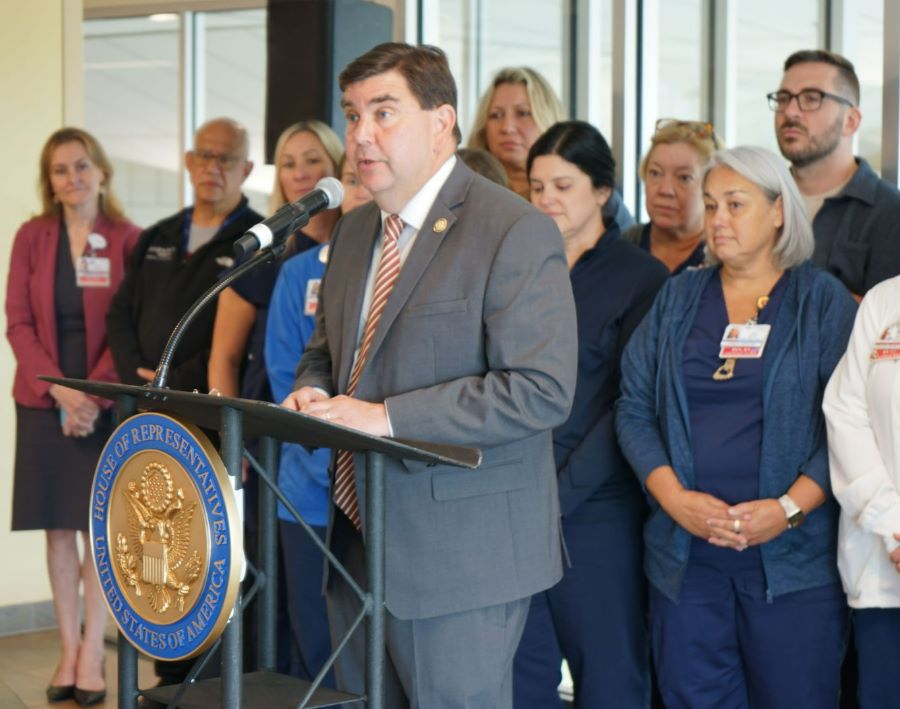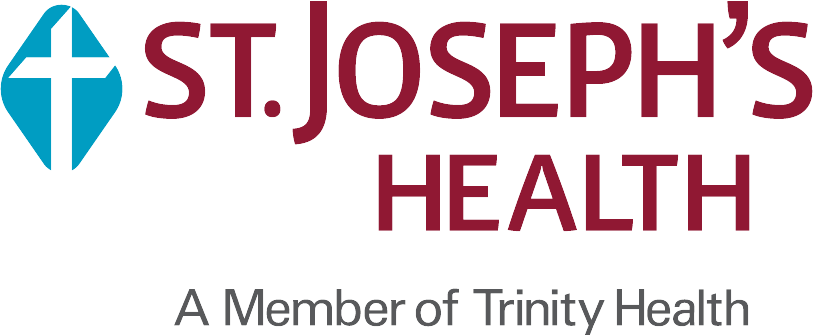Representative Mannion Meets with St. Joseph's Health Officials to Highlight the Impact Proposed Medicaid Cuts Will Have on Local Health Care Services
June 23, 2025
Nonpartisan analysis finds that legislation making its way through Congress will cause costs to go up for everyone and will kick millions off their health insurance
SYRACUSE, N.Y. - Representative John W. Mannion (NY-22) today met with administrators, health care providers, and officials from St. Joseph’s Health to highlight the devastating impact that Medicaid cuts included in the budget reconciliation bill will have on local health care services.
The budget reconciliation package, which passed the House of Representatives in May on party lines, cuts Medicaid by more than $700 billion. Nearly 250,000 people in NY-22 rely on Medicaid, including more than 90,000 children, tens of thousands of seniors, veterans, and people with disabilities. These cuts would harm every aspect of health care delivery in Syracuse, Central New York, and across the country.
Representative John W. Mannion said, “This would be the largest health care funding cut in our history, eroding progress and moving the country in the wrong direction. At St. Joseph’s, where so many rely on Medicaid for mental health care, emergency services, and primary care, these reckless cuts would gut essential programs. Across the country, hospitals will close, care will disappear, and lives will be lost — all so the wealthiest Americans can get a tax break they don’t need. I won’t stop fighting to protect the people of NY-22 and ensuring every person gets the medical care they need and deserve.”
As a not-for-profit Catholic health system, St. Joseph’s plays a critical role in Central New York’s health care infrastructure. It has the only psychiatric ER in the county and is a large primary care provider. As a safety net hospital, it serves a significant portion of the region’s refugee population, 80 percent of whom rely on Medicaid for basic health care services.
Meredith Price, Senior Vice President of Acute Operations at St. Joseph’s Health, said, “At St. Joseph’s Health, caring for the most vulnerable isn’t just what we do—it’s who we are. We are proud to serve as a safety net for Central New York, but we cannot continue to do so if Medicaid is gutted. These proposed cuts would jeopardize the health of tens of thousands in our community, and threaten our ability to provide the compassionate, high-quality care every person deserves.”
Trinity Health officials estimate the proposed cuts would result in financial losses of $70 to $140 million annually across their systems in Syracuse and Albany. This level of loss is not sustainable—and would force reductions in services, overcrowd emergency rooms, and raise costs for all patients, insured or not.
Dr. Steven Hanks, president and CEO of St. Joseph’s Health and St. Peter’s Health Partners, said, “We see the ripple effects when people lose coverage—they skip checkups, go without medications, and eventually show up sicker, in crisis. This proposal isn’t just fiscally irresponsible—it’s morally unacceptable. We need our leaders to protect Medicaid and invest in public health, not dismantle it.”
These cuts to Medicaid will not just impact people on Medicaid, but would drive up co-pays and premiums for everyone, strain already overburdened hospitals, and force health systems to make painful cuts, or even close their doors. These cuts also threaten vital services such as mental and behavioral health care - programs that take years to build, are already running at substantial losses, and cannot be easily restored once lost.
Over 500 amendments were offered on this budget bill, including Representative Mannion’s that would have prohibited the legislation from taking effect if it increases healthcare costs. They were all voted down on party lines.
Experts estimate that this bill could cause over 51,000 preventable deaths each year by stripping health care from working families, low-income seniors, and nursing home residents. That’s 140 people every day dying from policies that raise costs and restrict coverage. In addition to kicking millions of Americans off their health care, the Republican budget bill would introduce new red tape to our already complex health care system and deprive children and seniors of food assistance.
The Senate version of the bill goes even further— slashing funding that helps states like New York sustain their safety nets, while adding trillions of dollars to the federal deficit to fund tax cuts for the wealthiest Americans.
# # #
